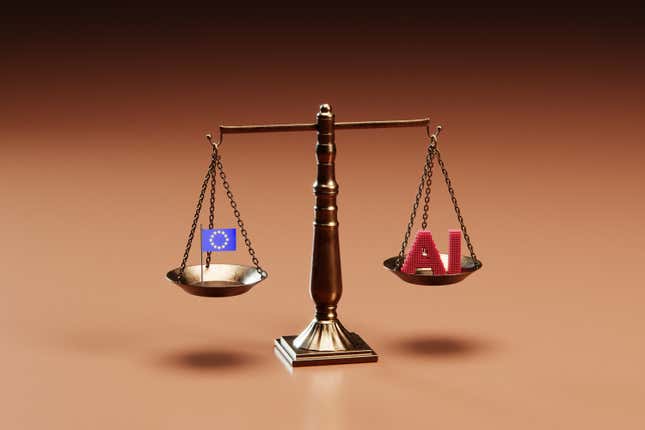The European Union has made a historic move with the implementation of the AI Act, marking the world’s first comprehensive legislation on artificial intelligence. Approved in May by EU member states and the European Commission, this groundbreaking law is poised to transform the development and use of AI technology on a global scale.

(Image from:Quartz)
The AI Act, first proposed by the European Commission in 2020, is designed to ensure that AI systems within the EU are safe, trustworthy, and uphold fundamental rights. It introduces a risk-based regulatory framework. For AI systems categorized as having limited risk, such as basic data processing tools, the Act mandates transparency but imposes fewer requirements. In contrast, high-risk AI systems, including those used in medical devices and biometric identification, face stringent regulations. These include detailed risk assessments and the use of high-quality data to minimize biases. Additionally, the Act prohibits AI applications that involve cognitive manipulation, social scoring, or predictive policing based on biometric data.
Generative AI models, like OpenAI’s ChatGPT and Google’s Gemini, are classified under general-purpose AI. While these models offer significant innovation opportunities, they are subject to specific requirements for transparency and cybersecurity. Open-source AI models, such as Meta’s Llama, are also regulated but with some flexibility for developers who make their models publicly accessible.
The impact of the AI Act extends beyond the EU, significantly affecting major U.S. tech companies. Meta has decided to withhold its upcoming multimodal AI models from the EU due to the uncertainty surrounding the new regulations. Similarly, Apple has postponed the rollout of some AI features in Europe. Nevertheless, Meta will release a text-only version of its Llama 3 model in the EU.
Companies that fail to comply with the AI Act face substantial penalties. Fines can reach up to €35 million ($38 million) or 7% of global turnover, whichever is higher. The fines are designed to be proportionate, ensuring that even smaller businesses face appropriate consequences.
With full implementation slated for 2026, the AI Act represents a significant shift in global AI governance. By balancing innovation with the principles of transparency and accountability, the EU is setting a precedent that could influence AI regulations worldwide. As businesses and tech firms adapt to these new standards, the AI Act will play a crucial role in shaping the future landscape of artificial intelligence.
Have a question about your intellectual property? Need assistance? Feel free to call or email us at (713) 364-4796 or admin@madan-law.com.
